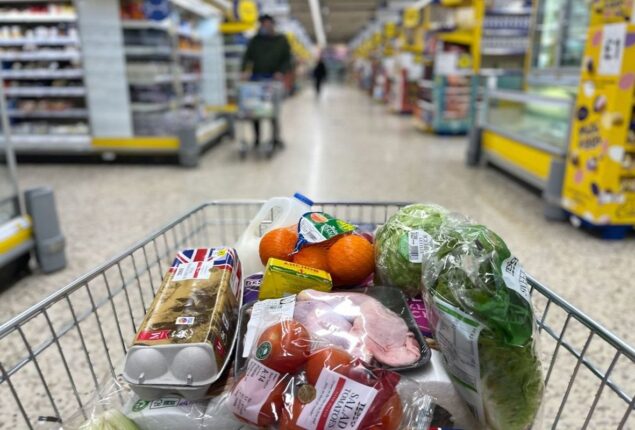RMT accused of playing fast and loose with Christmas plans
Union leaders rejected improved offers. It halted railway strikes and vowed more...

First drop in food prices in 21 months, yet Christmas dinner prices rise 9%
In November, grocery inflation declined for the first time in 21 months, yet a conventional Christmas meal will still be 9% more expensive than in 2021.
Kantar Worldpanel reported grocery inflation fell to 14.6% last month from a record 14.7% in October.
At the current rate, buyers would have to pay an extra £60 in December to get the same products as last year.
Food and other essentials have contributed to 41-year-high inflation.
Russia’s war in Ukraine worsened a post-COVID supply-and-demand mismatch, driving up commodities prices.
Record energy and fuel prices have significantly raised production and shipping costs.
In recent months, raw energy and commodity prices have softened, bolstering hopes that business and consumer prices could soon fall.
December is on track to be the largest ever for take-home grocery sales, according to Kantar.
“December looks destined to be a record-breaking month with sales topping £12bn for the first time,” said Kantar’s Fraser McKevitt.
Friday, December 23 will be the busiest day for pre-Christmas shopping.
Traditional Christmas dinner for four will cost £31 in 2022, up 9.3%.
Parsnip prices rose 30%, while potatoes rose 20%.
Frozen turkey cost 11% more.
Carrot and brussels sprout prices fell 7% and 3%, respectively.
Christmas pudding costs were flat year-over-year.
Kantar reported good sales by supermarkets, especially discounters, as people ate at home to save money.
It claimed grocery sales rose over 6% in the 12 weeks to November 27 compared to last year.
Separate data issued by the British Retail Consortium (BRC) on Tuesday revealed continued caution on discretionary spending but backed larger evidence that shoppers shopped throughout Black Friday.
BRC CEO Helen Dickinson said Black Friday discounts kicked off the holiday shopping season.
“Sales growth was substantially below inflation, suggesting volumes were down from the previous year.
Customers bought coats, hot water bottles, and hooded blankets when the weather turned. Black Friday bargains increased home furniture sales as families opted for affordable nights in.
The group, which also represents supermarkets, said merchants were doing all they could to keep prices low amid cost challenges.
“Cost of living crises implies families may scale back holiday plans. “Christmas happiness still has three weeks to bring in sales,” Ms. Dickinson said.
Catch all the Business News, Breaking News Event and Latest News Updates on The BOL News
Download The BOL News App to get the Daily News Update & Follow us on Google News.